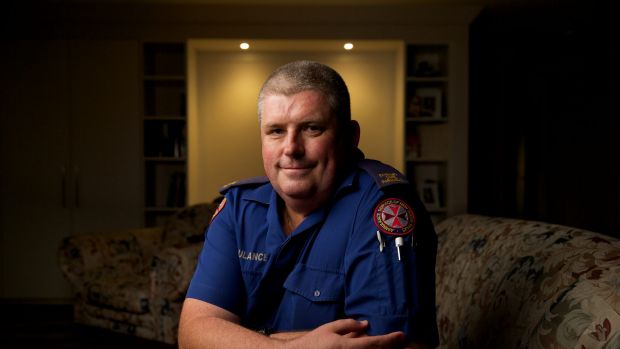![Paramedic Michael Robinson: "[The patient] responded by jumping up off the ground and punching me in the head."](https://www.medaxs.com.au/wp-content/uploads/2015/02/1423382998464.jpg)
Paramedic Michael Robinson: “[The patient] responded by jumping up off the ground and punching me in the head.” Photo: Wolter Peeters
Judges have been accused of failing frontline paramedics by repeatedly allowing violent attackers to walk free or escape with soft sentences.
In 2010, the NSW Government created tougher sentencing laws to provide better protection to ambulance staff facing an increasing threat of vicious assaults. The centrepiece of those much-publicised reforms was a maximum five-year jail term for people engaging in acts of violence against paramedics. But, as a Fairfax investigation revealed on Sunday, the full penalty has never been imposed by the courts, with many offenders having to pay only small fines.

The statistics.
In the past three years, the NSW legal system has dealt with 186 criminal charges relating to ambos attacked on the job. Last year, recorded assaults on paramedics jumped by almost a quarter, to 174, a rate of more than three each week. Those incidents involved workers being punched, head-butted, bitten and strangled, while others were held at knifepoint and threatened with guns, broken bottles and bats.
Ray Creen, chief executive of NSW Ambulance, said while police were “supporting” their fellow frontline colleagues with investigations that had paved the way for a record 87 charges last year, the same could not always be said for judges: “Our paramedics are saying ‘enough is enough’.
“We want to see the highest possible sentences handed to people who hinder us doing our job. We want these offenders to be prosecuted and dealt with with the full force of the law, with a punishment delivered by the justice system to fit the crime.”
In July last year, Central Coast-based paramedic Michael Robinson transported a patient from his home to Wyong Hospital so doctors could assess why he was feeling unwell.
A short time later, a commotion erupted when the same patient “blocked access” to the emergency department by lying flat down on his back, between two doors.
Mr Robinson, who has been with the service for 28 years, said: “As the person who brought him in, I approached and very politely asked if he could hop up off the floor because nobody could get in and out. He responded by jumping up off the ground and punching me in the head”.
Both men hit the ground in a “screaming heap”, with the patient “determined to continue” the assault until security arrived and subdued him. Mr Robinson suffered injuries to his neck, back and hand that required ongoing treatment.
While the offender later pleaded guilty to common assault, he left court with a $200 fine and a 12-month good behaviour bond.
“The service has done a lot of work in recent times to get this issue out in the open, to encourage paramedics to report these incidents and create an appropriate pathway for us to follow. So, it was extremely disappointing, for me, that this was the end result. I appreciate there have been some significant sentences handed down but, clearly, there is no consistency from the courts. If there is no deterrent, people will continue to view us as easy targets.”
NSW Health Minister Jillian Skinner supported the paramedics.
“NSW Ambulance has made its zero-tolerance approach clear and I support them in their pursuit of prosecutions.
“More paramedics are working with NSW Police to report these appalling incidents and I trust the courts will respond accordingly.”
NSW Attorney-General Brad Hazzard said attacking a paramedic “is appalling”.
“Using alcohol or drugs as an excuse doesn’t cut it. We have tough penalties and I support the entire legal system responding with a focus on deterring attacks on those who risk their lives to save others.”
